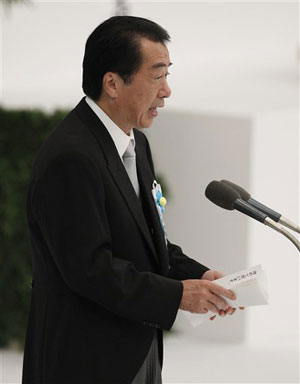Today the Nikkei 225 index closed at 9,161.68. The same index, widely used to track the state of Japan’s stock market, ended 1989 at 38,915.90. Why the Nikkei has dropped 77% in two decades and remains so low is a great mystery to investors, economists and social scientists.
The most popular theory explains away Japan’s boom of the late 1980s as nothing more than a big bubble. It has been compared to the NASDAQ bubble between 1995 and the March 10, 2000 when it hit 5,132.52. Today NASDAQ is at 2,209. That’s about 43% of its peak value, almost twice that of the Nikkei 225 relative to its peak.
Most of us would agree that bubbles do form and burst from time to time. But that doesn’t explain the vertiginous drop and generation-long persistence of Japan’s post-bubble doldrums during which time it lost its consumer electronics supremacy to S. Korea and its status as the leading Asian economy to China.
Japan’s stunning inability to pull off even a modest revival after all these years hasn’t yet found a satisfying explanation. There are plausible contributing factors — aging population, low birth rate, frugal mindset of consumers. But even collectively they fail to explain how a nation with so many stellar companies in industries from cars to robotics to optics to electronics can fail to inspire more confidence and enthusiasm among investors, consumers and young couples when even countries with far fewer success stories (say France, Russia, Turkey, Thailand) have been enjoying more robust growth and better prospects for continuing growth.
The explanation can only be found in the Japanese mindset. To most Americans it has been most graphically illustrated by the exploits of kamikaze pilots during World War II and the ritual self-disembowelment of sepukku. These concepts are indeed founded in Japanese social psychology, but by now have passed into mindless stereotypes as examples of inhuman Japanese extremism, and most references to them are rightly deemed meaningless and offensive. Yet even these trivialized aspects of Japanese cultural tradition contain hints of one of the most persistent aspects of Japanese psychology: the herd instinct.
That intense devotion to adhering to the group’s collective will was the trait that let Japan—in one great, sustained national push—shake off its isolation and become a great industrial power in the span of only 40 years beginning with the Meiji Restoration and culminating in its stunning victory over Russia in 1904 at Port Arthur (which in turn helped ignite the Communist revolution). That same herd instinct was well exploited to propel its imperial conquests across Asia and the Pacific. Even after its devastating defeat in 1945, that same psychology allowed Japan to rebuild into a nation even more formidable in global trade than in imperial conquests. Its auto and electronics giants came to dominate the global economic landscape, seemingly buying up everything in sight. The nation seemed as unstoppable as the Mongol horde under Genghis Kahn and progeny.
Then suddenly in 1990 and 1991 Japan began collapsing.
It was as though the entire nation had decided that its days of glory had come to an abrupt end. The savings rate, which had been declining sharply since 1978, suddenly reversed itself. Extravagant spending on European luxuries and American real estate went out of vogue. The death rate began going up and the birth rate—which had been dropping sharply for a decade—stayed frozen below replication levels.
Most societies are able to produce a steady supply of contrarians — those hardy individuals who get going when the going gets tough. Japan is sub par in that regard. While a few leaders emerge from time to time to exhort fellow citizens to go against their herd instincts, they always end up being trampled by the herd.
Prime Minister Naoto Kan is the latest Japanese leader with a contrarian streak. He is trying to yank Japan from its downward trajectory by reversing its somewhat guilty and yet defiant self image as a rogue among Asian nations, doomed to playing protectorate to a suzerain United States, before having to kowtow to an ascendant China.
As with Yukio Hatoyama before him, Kan knows that this self-image is behind Japan’s immense passivity and fatalism. He has taken the bold step toward trying to revive a sense of responsbility and humanity among average Japanese by apologizing to S. Korea as a step toward reclaiming initiative in the world. The Germans did that, including volntary compensation to the victims of its quest for dominance. Today Germany is thriving as the leader of the EU. But sadly, Kan is as likely as his predecessor to being sacked before he can shake up that herd instinct. The Japanese simply don’t have a strong enough self-image yet to be able to stomach a strong leader with a clear vision.
Now more than ever Japan needs a powerful, charismatic leader who can inspire it to see itself as a dynamic, resourceful people capable of leading the world toward a more efficient, sustainable future. Unfortunately, the herd instinct remains so ingrained that things will have to get much worse before Japan will be able to shake off its two decades of paralysis and end its decline.

